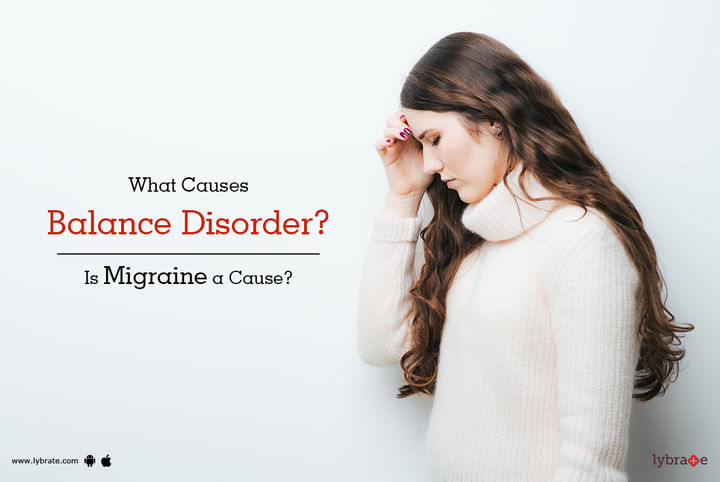What Causes Balance Disorder? Is Migraine a Cause?
Balance disorders are a combination of physiological factors that can make you feel unsteady or dizzy. While sitting, standing or lying down, you may feel as if you are floating, moving, or spinning and you may feel dizzy and dazed for the time being. This disorder can intervene in your daily activities of life, and can even lead to falls and accidents, which may cause you to end up with fractures and other types of injuries.
What causes balance disorder?
A combination and coordination of many body systems such as muscles, bones, vision, the balancing organ within the ear, heart and nerves help maintain normal balance. Dysfunction of these systems can lead you to encounter balance problems. Balance disorders can be caused by many types of conditions.
Some of the causes of the disorder are:
Benign paroxysmal positional vertigo (BPPV): This occurs due to dislodged or displaced calcium crystals in the inner ear, which help you maintain balance. It is the most commonly found cause of vertigo. A spinning sensation while turning in bed is a common sign.
- Migraines: Migraines are a general cause of dizziness. Sensitivity to motion can also be caused by migraines. It can also lead to motion sickness, which is dizziness experienced when traveling in boats, cars or airplanes.
- Head injury: A severe concussion can also cause vertigo.
- Ramsay Hunt syndrome: Commonly known as zoster otitis, this condition affects the nerves close to the ears. It can be attributed to hearing loss, vertigo and pain in the ear.
- Vestibular problems and nerve damage: Damaged nerves in the legs can cause difficulty in movement and locomotion. Abnormalities and dysfunctions in the inner ear can lead to a sensation of dizziness and a heavy head.
How do you know if you have balance disorder?
Some of the characteristic symptoms of this condition include:
- Blurred vision
- Nausea and vomiting
- Diarrhea
- Blood pressure
- Fatigue
- Depression and anxiety
- Psychological disorientation
- Fluctuations in blood pressure and heart rate
'Consult'.
Related Tip: Why Do You Get an EAR Discharge?



+1.svg)
